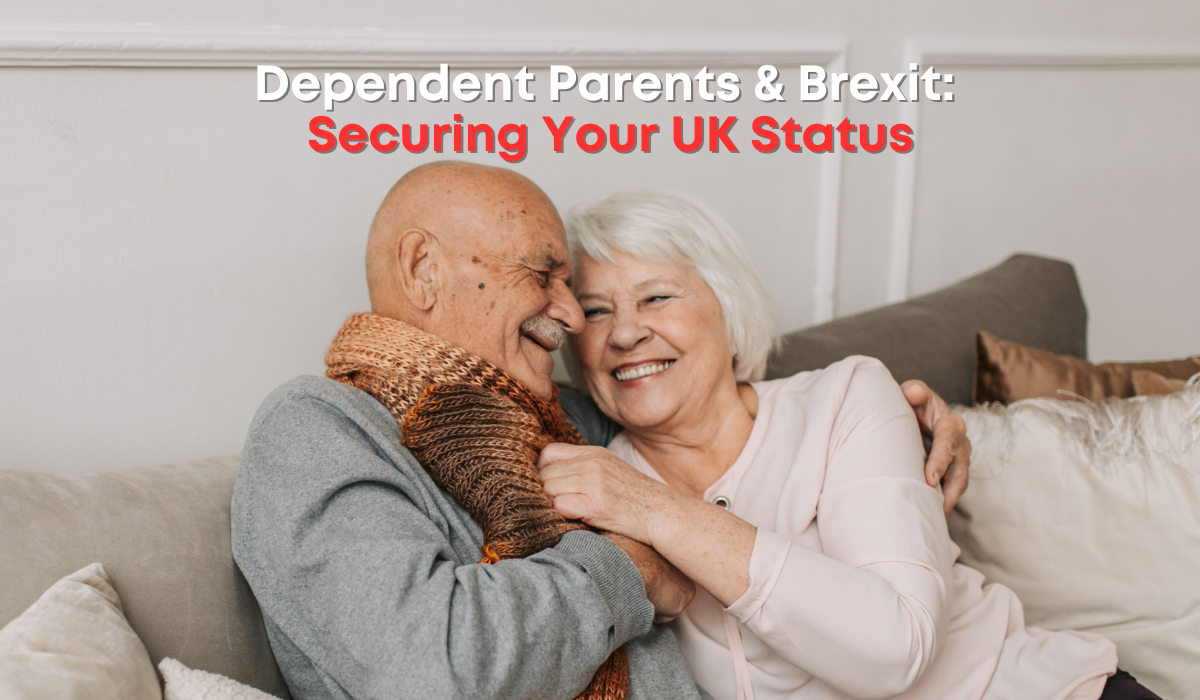In the evolving landscape of UK immigration, the EU Settlement Scheme (EUSS) has become a critical pathway for dependent parents of EEA citizens seeking stability and security in the United Kingdom. With recent updates to the Immigration Rules impacting application deadlines and dependency requirements, navigating the intricacies of the scheme requires a careful and informed approach. This article explores the key provisions, changes, and practical steps involved in applying for pre-settled or settled status under the EUSS.
Dependent Parents: An Overview
Dependent parents of EEA citizens—or their spouses or civil partners—may apply under the EUSS for either pre-settled or settled status. For those outside the UK, an EUSS Family Permit is the entry point. However, strict eligibility criteria and deadlines govern these applications, making timely and accurate submissions crucial.
Application Deadlines and Recent Changes
To qualify as a “joining family member of a relevant sponsor,” the family relationship must have existed before 31 December 2020 and must still exist at the time of application. Recent amendments to the Immigration Rules, effective from 8 October 2024, have introduced specific deadlines for joining family members. Applicants must submit their applications within three months of their first arrival in the UK after 31 December 2020 or provide reasonable grounds for a late application.
These changes underscore the importance of compliance and preparedness for applicants and their legal representatives. For a detailed analysis of these updates, refer to our article, EU Settlement Scheme (EUSS): Key Updates for Family Members.
Defining “Dependent Parents” Under Appendix EU
Appendix EU of the Immigration Rules provides a structured definition of “dependent parents.” This includes direct relatives in the ascending line of an EEA citizen, a qualifying British citizen, or their spouse or civil partner. For applications made before 1 July 2021, dependency was assumed, while post-1 July 2021 applications require clear evidence of dependency.
The definition of dependency, as outlined, includes:
- An inability to meet essential living needs without financial or material support.
- Evidence of such support being provided by the relevant sponsor.
- No requirement to justify the reasons behind the dependency.
Evidence Requirements: Building a Robust Application
The success of an EUSS application often hinges on the quality of evidence provided. Applicants must establish both their familial relationship and dependency. Key documents include:
- Birth certificates or adoption papers proving the direct ascending relationship.
- Financial evidence, such as bank statements or money transfer records, demonstrating dependency.
- Medical documentation, where applicable, to support claims of dependency on serious health grounds.
In addition, proof of the EEA citizen’s identity, nationality, and immigration status in the UK is mandatory.
Transitioning from Family Permits to Pre-Settled Status
For those who initially relied on assumed dependency to secure an EUSS Family Permit, transitioning to pre-settled status requires demonstrating dependency if the application is made post-1 July 2021. This position was clarified in the landmark case of Secretary of State for the Home Department v Rexhaj [2024] EWCA Civ 784. Applicants must present robust evidence to substantiate their claims of dependency during this critical transition phase.
Applying for Settled Status: A Simplified Process?
Encouragingly, the dependency requirements lessen for those seeking settled status after holding pre-settled status. As per Rule EU4 of Appendix EU, dependency at the time of the pre-settled status application suffices for eligibility for settled status. Applicants do not need to re-establish dependency, provided the family relationship remains unchanged. This provision ensures that individuals who have demonstrated dependency once are not penalized if their circumstances evolve.
Final Reflections: Navigating the EUSS Pathway
The EUSS provides a vital route for dependent parents of EEA citizens to secure their future in the UK. However, the scheme’s complexities demand meticulous attention to detail and adherence to the latest Immigration Rules. With application deadlines, evolving definitions of dependency, and stringent evidence requirements, seeking expert legal guidance can make all the difference.
At a time when immigration rules are under constant scrutiny, the ability to adapt and respond to these changes is essential for applicants and practitioners alike. The recent updates highlight the Home Office’s commitment to refining the EUSS framework while ensuring that genuine family ties are preserved.
For those navigating this journey, understanding the nuances of the scheme is crucial. Whether you are applying for a Family Permit, transitioning to pre-settled status, or seeking indefinite leave to remain, the path to success lies in preparation, precision, and perseverance.
Get in touch: For a comprehensive understanding of your options or queries on UK immigration matters, contact GigaLegal Solicitors at 02074067654 or click here to book a no-obligation consultation with an immigration expert.


